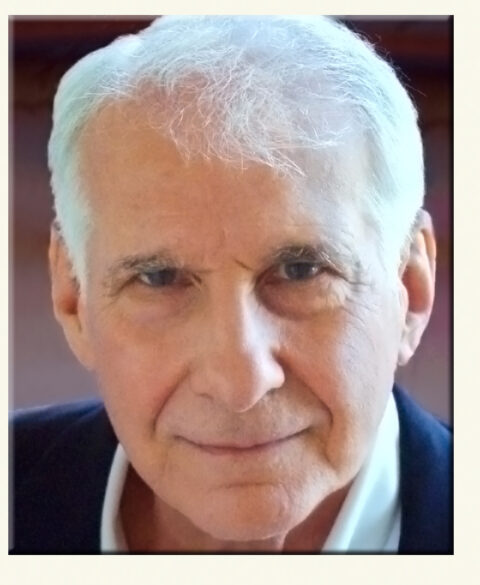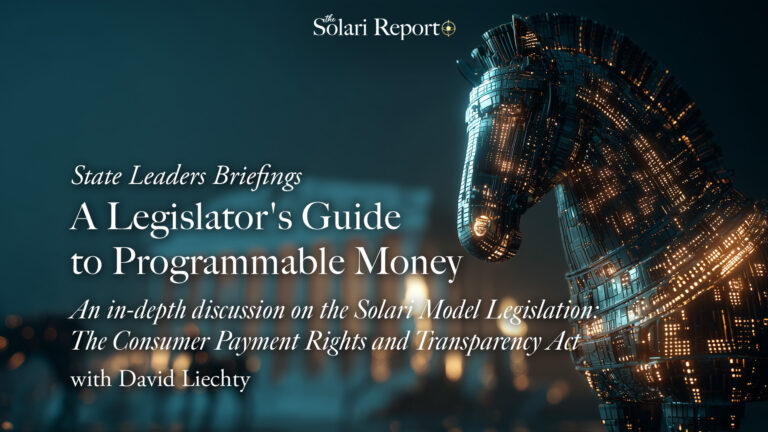
A Short Preview:
“Psychiatry has been the enforcer of choice used by strong-arm governments for as long as it has existed.”
~ Peter and Ginger Breggin
By Catherine Austin Fitts
This week, I welcome Dr. Peter Breggin back to the Solari Report for a very important conversation about how to protect our children from the dangerous weaponization of mental health. There is no one more qualified to thoughtfully discuss this topic.
It is essential that parents understand and learn to protect their children from the sophisticated tools that Mr. Global is using to harvest children’s bodies, minds, and data. The threats can come from multiple directions; medical-pharmaceutical interventions (e.g., antidepressants, vaccines, transgender surgery), smartphones that deliver entrainment, and “woke” curricula are just a few examples. The all-important parent-child relationship is also under attack—though parents will remain financially liable for any harms that result.
Teaching children how to protect themselves in this environment goes far beyond the standard advice “not to talk to strangers.” Breggin emphasizes that protection begins with creating a loving home environment—characterized by both discipline and respect—that teaches children to treasure themselves, and with parents setting aside meaningful time for their children. Practical steps also include limiting time online and maximizing time in nature.
This is a topic that I hope parents, parents-to-be, and grandparents will take seriously.
Money & Markets:
In Money & Markets this week, John Titus and I will cover the latest events and continue to discuss the financial and geopolitical trends Solari is tracking in 2023—and the pushback rocking and rolling us around the globe. Post questions at the Money & Markets commentary here.
Related Solari Reports:
Heads Up from Catherine: Weaponization of Mental Health
Blast from the Past: Week of August 29, 2022: The Weaponization of Mental Health
Transcending Fear with Peter Breggin, MD
Hero of the Week: October 19, 2020 – Peter Breggin, MD
Hero of the Week: February 20, 2020 – Peter Roger Breggin
Let’s Go to the Movies: Week of August 29, 2022: Psychiatry: An Industry of Death
Related Resources:
Peter R. Breggin MD (Substack)
Peter and Ginger Breggin Exposing the Global Predators (Substack)
The Weaponization of Psychiatry
Dr. Peter Breggin on The Weaponization of Mental Health Edicts
Peter Breggin: What is the Global Predator Profile? (D4CE Symposium IV, June 11, 2022 – Session II: A Long History of Crime and Abuse in Medicine with Catherine Austin Fitts)
Books by Dr. Peter R. Breggin, MD




















































































































SO wonderful to see Dr Breggin looking so well and sharp as ever! So proud of him and you Catherine. This is a great interview. -Jennifer
This interaction was a bit of an emotional roller coaster for me because I know a thing or two about psychiatric wards operations.
Derealisation and depersonalisation of whole populations worldwide seems the name of the game. We are all targeted victims under attack via technology and social tinkering to achieve that goal. It is paramount adults understand this in order to understand how to protect our prodgeny. Our prodgeny, I believe has never been so directly and effectively under attack as today.
Thank you both for this wonderfull lovingly back and forth and all the efforts you do to protect that what is so precious.
Alexandra:
You always have great insights on these issues. If you are inspired to do so would be great to see any descriptions you have on the tactics used that you have observed and in addition to literacy on how we are attacked, the tactics we can use to create a culture and field to keep these tactics from landing and impacting to waste our time and energy. It is a complex topic, but the more we each add pieces on the jigsaw puzzle, the more we see.
One of the tactics towards children seem to be not letting them bloom into a well defined person. The younger the disturbance of this proces the higher chances of success in derealisation and depersonalisation. How can you set boundaties if there is not enough self awareness? The whole of society seems primed and steered to decapitate our children from natural developped adulthood as young as possible. As a society we should work against such developments.
I think you and Dr Bregging said it best, nature, banning tech are a primary and vital start next to healthy foods and no toxins. I don’t know a site like Solari where there is such a buffet to choose from in educating oneself.
There is a supplement I use that has been very helpful for me in thwarting an oncoming psychotic episode I won’t mention here, due to the fact I don’t know if it is safe for kids nor if it would help them. You can forget any pharmaceutical period.
Yup. Have to say castor oil always helps to bring peace and calm.
My grandmother taught me the Christian perspective that we are in the world but not of it. That separation—that the world is separate from the divine—has always helped me navigate. Except for those times when I just had to learn the hard way and understand that real crooks can hide behind the cross and come across as respectable. That’s how I learned that through their fruits you shall know them.
Excellent interpretation for this topic for all ages, I believe. Thank you!